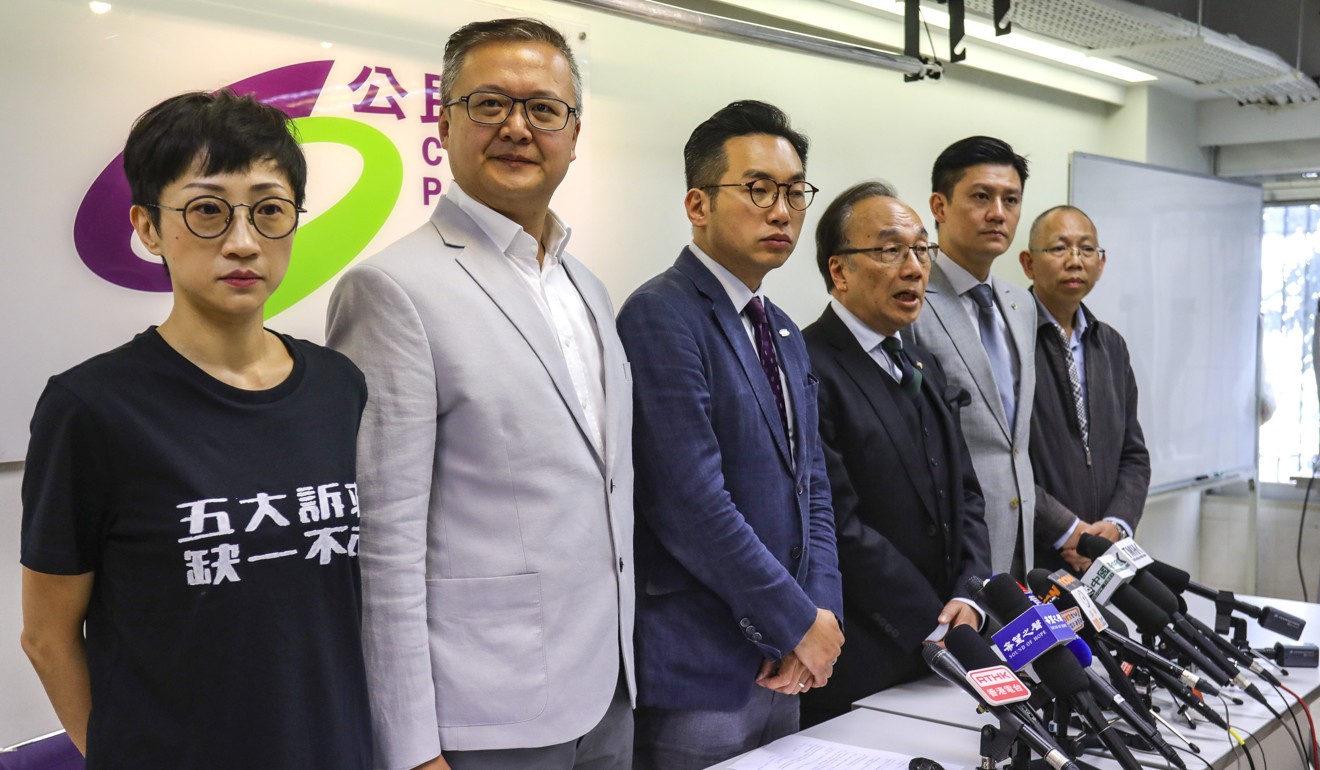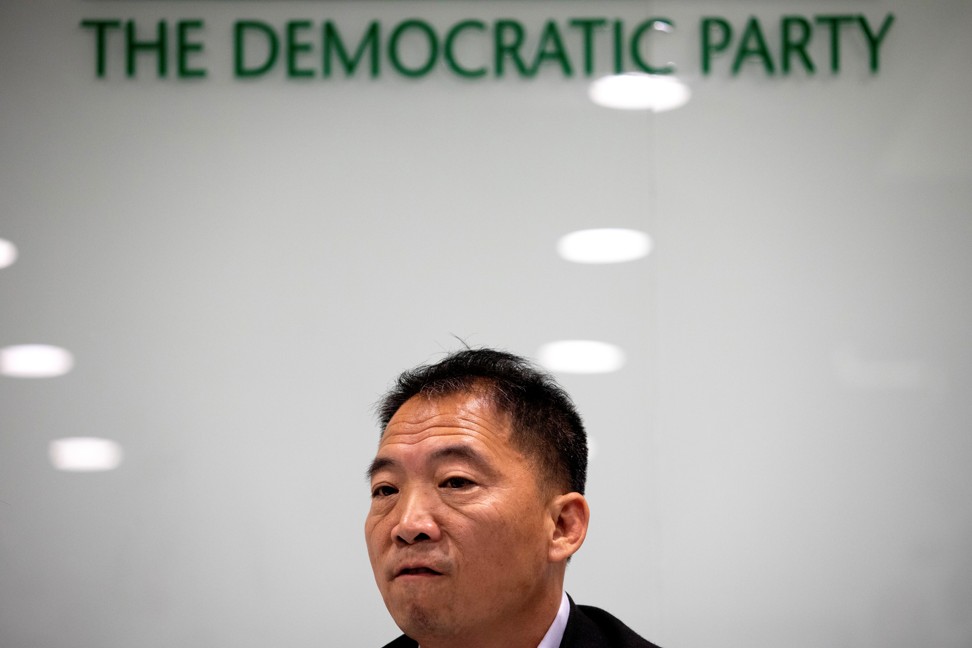Hong Kong elections: pan-democratic camp pledges to focus on residents’ needs, while keeping up pressure on government after district council wins
- Pan-democratic camp raring to use their majority to put pressure on government
- Newly elected councillors hope to help protest movement with jobs, aid for activists

A day after sweeping 17 out of 18 district councils in Sunday’s elections, Hong Kong’s pan-democrats on Monday vowed to keep both politics and residents’ needs high on their agenda.
The Democratic Party and Civic Party, the two groups with the most district council seats, pledged on Monday to also use the largely advisory bodies as a platform to pressure the government on political and policy matters.
“In the past, all the 18 district councils always took the stance of supporting the government, often ignoring people’s opinions,” Democratic Party leader Wu Chi-wai said. “If we pass a joint resolution in each district, it will be a huge pressure on the government.”
In what was widely regarded as a referendum on the government’s handling of more than five months of unrest, the pan-democratic bloc swept 347 of 452 seats in the elections, delivering a powerful blow to the pro-establishment camp that earlier controlled all the 18 district councils.
The Democratic Party won the largest haul of 91 seats, followed by the Civic Party with 32.
Wu said that in the past, the pro-establishment camp used their majority in the council to push through whatever they backed, including passing resolutions supporting the government’s extradition bill that triggered the protests in June.
Pro-establishment councillors would simply go ahead, he said, ignoring strong opposition from the outnumbered pan-democratic councillors.
Wu hinted that the new councils might well use the same tactics to push through their agenda.
For example, some newly elected pan-democrat councillors in the Yuen Long District Council have already pledged to push for an investigation into the July 21 incident at the MTR station when a group of men dressed in white attacked passengers and protesters viciously. Wu said the previous council vetoed a motion seeking an investigation.
Despite their stunning triumph, Wu and his allies were not ready to celebrate, saying it was time for them to remain vigilant.
They have not forgotten how the pan-democrat camp staged a big win in the 2003 district council polls, only to be voted out of office four years later.

Their 2003 victory came after a massive protest against a proposed national security law. But the defeated pro-establishment camp staged a comeback at the 2007 elections, retaking control of the councils.
The pan-democrats now hope to avoid letting history repeat itself.
Civic Party chairman Alan Leong Ka-kit said: “They used four years to make a comeback in 2007, so we will have to be alert because they also have a solid base of support.”
He said the pan-democrats must reach out to the roughly four in 10 voters who supported pro-Beijing or pro-government candidates.
“They must have a reason,” he said. “If there is more to be done, we shall do it.”
Wu, a district councillor for almost two decades, said that apart from politics, there was much that could be done at the district council level to help propel the democratic movement.
The councils are largely municipal bodies taking care of local amenities, but he pointed out that they negotiate with bureaucrats at the local level for resources and manpower to carry out projects that have an impact on residents’ lives.
Each district has an annual budget of between HK$30 million (US$3.8 million) and HK$40 million for infrastructure projects and amenities. Aside from a salary of HK$33,950 a month, a councillor also has access to HK$44,816 in allowances each month to use as needed, including to help residents.
“These are very tangible ways to address livelihood issues,” he said. “The work of the district councils may not be very glamorous. But we can bring about a real change in the lives of people by using our resources well.”
As for plans already approved by the previous councils, Wu said: “We may not be able to stop the unpopular funding proposals by the pro-establishment camp entirely, but we can at least amend the contracts and downsize them.”
In the past, pan-democratic councillors who were outnumbered in the district councils complained that it was hard for them to get their ideas through, as the majority pro-establishment councillors would block, shrink or amend their plans.
The massive victory by the pan-democrats came on the back of more than five months of anti-government protests. On Monday, there was a consensus among the winners that they needed to repay the frontline protesters in some way, although no plans have been made yet.
Former student leader Lester Shum, who was unaffiliated to any party but won by a landslide in Tsuen Wan, said he was open to proposals being floated to support those who have been arrested, either by hiring them as assistants or donating part of his salary to help them.
“We have achieved so much in the elections because of the movement, so we have an obligation to share with those who suffered,” Shum said.

Democratic Party leader Wu said he was open to providing 60 jobs in various offices by hiring anti-government activists, while also considering donating the additional salaries of council chairmen and vice-chairmen, of between HK$10,000 and HK$30,000, to support the movement.
Lawmaker Jeremy Tam Man-ho of the Civic Party said they would consider proposals to assist those involved in the protest movement with an “open and honest” approach.
The two parties, which have called for a peaceful resolution to the current crisis, said their ideas to support protesters were mainly meant for those in need.
They did not comment on radical protesters who may have committed violence and vandalism in the protests, nor did they say what they would do to help end the violence.